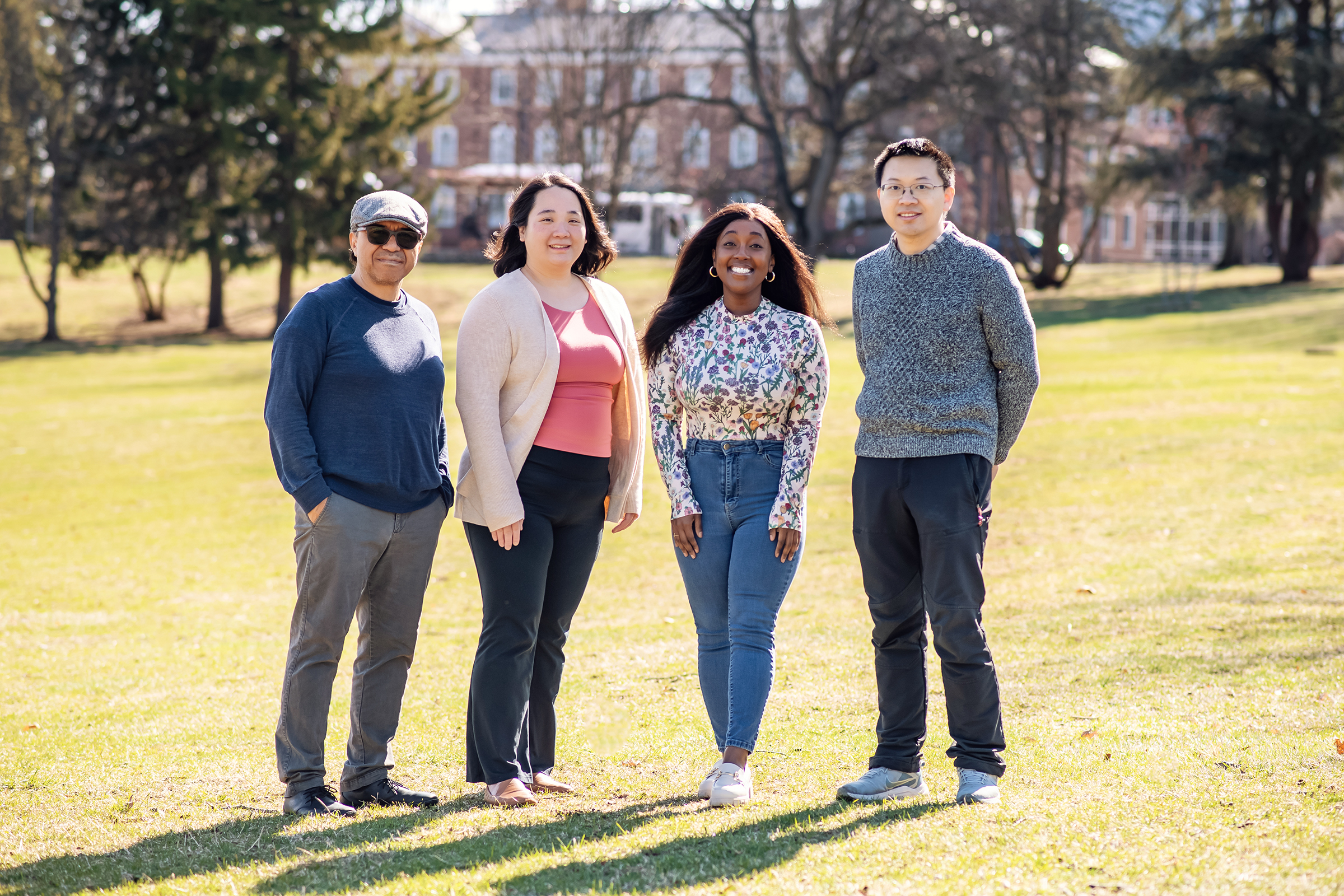
L-R: New SEBS faculty Javier Zavala-Garay, Jennifer Sun, Meli’sa Crawford, and Tianming Yao. Photo: OPOC.
Fall course registration at the School of Environmental and Biological Sciences (SEBS) commence on March 31. Continuing students will see several new faces added to the faculty ranks, representing a wide range of majors at SEBS.
Meet four new faculty recently who were hired across four of the school’s 13 academic departments and 21 majors but united in what they love—preparing the next generation of Rutgers students to tackle current and emerging challenges facing the world.
Department of Biochemistry and Microbiology
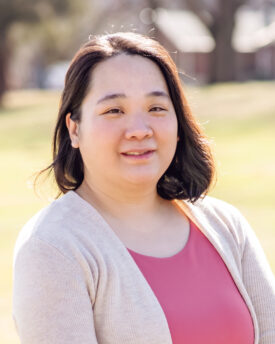
Assistant Professor in the Department of Biochemistry and Microbiology Jennifer Sun. Photo: OPOC.
Jennifer Sun, an assistant professor in the Department of Biochemistry and Microbiology, will be teaching “Microbial Biochemistry” in the fall.
She views education as “a lifelong journey—not just about absorbing facts but about learning how to think, ask the right questions, and solve problems” and sees her role as creating a space where students feel empowered to explore, challenge ideas, and push their own limits. Students who take Sun’s class this fall can look forward to “well-defined learning goals and genuine compassion” so they feel both supported and pushed to grow.
“I rely on chalk-talk, interactive learning modules, and open-source tools to make complex scientific concepts approachable and engaging. Science doesn’t happen in isolation, and neither should learning.”
Her approach is to integrate interdisciplinary teamwork through semester-long research projects, where students tackle real-world problems and apply their knowledge in meaningful ways. “By scaffolding learning and prioritizing hands-on experience, I help students move beyond memorization and into real problem-solving. At the end of the day, I believe students thrive when given the right tools, encouragement, and the freedom to take ownership of their learning. My goal is to provide all three—so they leave my classroom not just with more knowledge, but with the confidence and skills to think like scientists.”
Sun was already deeply connected to Rutgers as an undergraduate student enrolled at the School of Arts and Sciences, but she did her first independent research project in the Department of Entomology at SEBS. Under the mentorship of retired professor, Randy Gaugler, she discovered the beauty and logic of scientific inquiry and forged lasting mentor-mentee relationships with SEBS scientists. That camaraderie and support within the school played a pivotal role in leading her back to SEBS to teach.
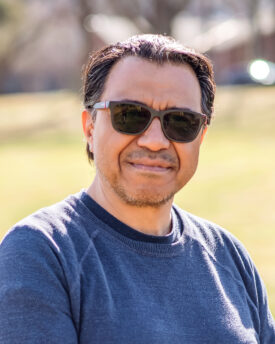
Assistant Professor in the Department of Marine and Coastal Sciences Javier Zavala-Garay. Photo: OPOC.
Department of Marine and Coastal Sciences
In the fall, Javier Zavala-Garay, assistant professor in the Department of Marine and Coastal Sciences (DMCS), will be co-teaching “Geophysical Data Analysis” and “Physical Oceanography” with Professor Robert Chant.
Students in his classes will experience hands-on activities and compelling visual examples that will greatly facilitate the learning of abstract topics, especially in geophysical sciences. “In my experience, we learn by doing and seeing. Therefore, my teaching approach emphasizes, when possible, the mathematical manipulation and visualization of oceanic or atmospheric datasets as a way of learning abstract concepts. This hands-on approach also promotes a one-to-one teacher-student interaction that allows for individualization of the learning experience for the benefit of the student.”
Zavala-Garay is no stranger to Rutgers, having served in a grant-funded position with the Ocean Modeling Group at DMCS for many years. This has provided him with deep exposure to the latest state-of-the-science methodologies for operational forecasting of the ocean circulation. “My desire to share this up-to-date knowledge with the next generation of scientists motivated me to begin teaching at SEBS.”
Department of Animal Sciences
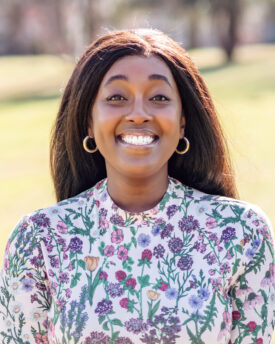
Assistant Professor in the Department of Animal Sciences Meli’sa Crawford. Photo: OPOC.
Meli’sa Crawford, assistant professor in the Department of Animal Sciences, is busy setting up her lab through the remainder of 2025, and is looking forward to teaching undergraduate physiology at the whole animal and/or at the cellular and molecular level in Fall 2026.
Crawford is excited to share her research that’s focused on investigating the impact of agricultural pollution on intestinal health with her students. “My approach is fundamentally learner-centered, emphasizing active learning through inquiry-based and project-based methods. I will incorporate technology and resource-rich activities to create an inclusive environment where peer collaboration is valued, and every student can engage with the content in ways that best suit their learning styles.”
A new faculty member hired in January this year, Crawford sought out an environment where interdisciplinary inquiry and real-world impact are prioritized. “SEBS is a perfect fit for me because this environment will not only enrich my scholarly pursuits but also inspire innovative, hands-on teaching approaches that connect theory with practical, real-world challenges.”
Crawford is even thinking ahead to graduate-level teaching, where she envisions “developing a new course that aligns with my research interests at the nexus of gastrointestinal physiology, the microbiome and toxicology. This aligns with my research vision of establishing a program using multi-omics approaches to study health disparities and the metabolic and gastrointestinal impact of ingesting foods contaminated with agricultural pollutants.”
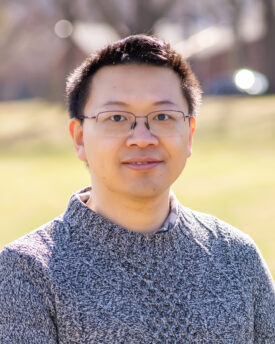
Assistant Professor in the Department of Food Science Tianming Yao. Photo: OPOC.
Department of Food Science
Tianming Yao, assistant professor in the Department of Food Science, is already deeply engaged in the classroom this spring doing several guest lectures in the “Food Biology Fundamentals” graduate course. He’s eager to continue these teaching assignments in Fall 2025 and sharing his knowledge.
“My teaching approach is student-centered active learning. I integrate interactive questions and case-based discussions to encourage critical thinking. Through group projects and discussions, I aim to help students apply their knowledge to real-world problem-solving.”
Having completed post-doc research in the Midwest, Yao headed east to Rutgers.
“SEBS offers a diverse, interdisciplinary environment with fields including plant, animal, microbiology, and nutrition sciences, all of which closely connect to food science and my research focus on diet and gut microbiome interactions. The strong collaborative potential across departments was a key factor attracting me to SEBS.”

